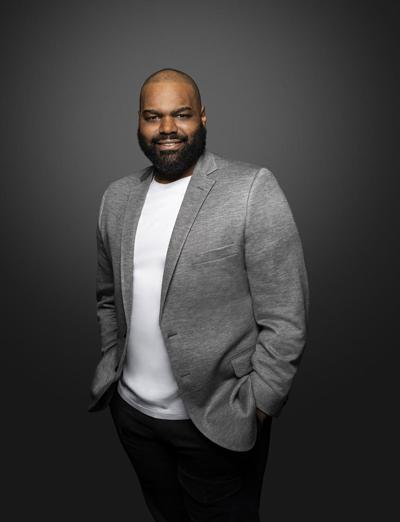
Michael Oher
Conservatorship case C-010333 marked 20 years in Memphis probate court this month. In that time, Michael Oher, a standout tackle decorated with national honors out of Ole Miss, was drafted by the Baltimore Ravens in the first round of the 2009 NFL draft. He helped the team win Super Bowl XLVII in 2013 and played eight seasons in the league, including one for the Tennessee Titans.
Oher married his college sweetheart and started a family in Nashville, where they live today.
The Blind Side, a 2009 movie about a white Memphis family who adopted a homeless Black teenager, then turned that teenager into a football star, made Warner Bros. $309 million. The Tuohys, the Memphis family who negotiated the rights to the movie, made money too. Michael Oher, depicted by his legal name in the movie, just kept playing football.
Then a comment to Oher from one of the Tuohy siblings about a big check brought things back to C-01033.
“In all of my 43 years, I have never, ever seen a conservatorship being opened for someone who was not disabled,” said Probate Court Division 1 Judge Kathleen Gomes during opening remarks in a transcript dated Sept. 29, 2023 — the day she terminated the Tuohys’ conservatorship over Oher. “And I say that because, you know, we take the conservatorship statute very seriously. It’s for people that have a disability. We are taking away rights when we establish a conservatorship, and those rights are then given to somebody.”
The case, opened in August 2004, conferred Oher’s legal rights to the Tuohys for 19 years. That summer two decades ago — between Oher’s junior and senior years of high school — Oher was already a football star. Colleges, including blue-chip SEC programs, already had him on their recruiting radar. A college career seemed guaranteed; going pro, not far off.
Oher hired his own counsel last summer to finally end the conservatorship, which — when Oher was 18 — had been portrayed to him as an adult adoption when his attorney, a friend of the Tuohys, set up the legal agreement.
In some ways, Oher told The New York Times in a profile earlier this month, he was the hapless teen in need of material support generously offered by the Tuohy family. But in a big way, he was not.
“It’s hard to describe my reaction,” Oher told the Times’ Michael Sokolove. “It seemed kind of funny to me, to tell you the truth, like it was a comedy about someone else. It didn’t register. But social media was just starting to grow, and I started seeing stuff that I’m dumb. I’m stupid. Every article about me mentioned The Blind Side, like it was part of my name.”
Oher has said the movie’s depiction affected his draft stock. The tackle position requires a nuanced understanding of football and a deft command of the entire offensive playbook, a central point made by Michael Lewis in his 2006 book The Blind Side: Evolution of a Game, which featured Oher’s story. This month, Lewis contributed a sworn affidavit to Oher’s case.
Somewhere between that Memphis summer, Lewis’ book and the movie, Oher’s story morphed into a charity tale that rewrote the facts, robbing Oher of his intelligence, agency and hard work. Hollywood blended racist stereotypes with a formulaic plot. The Blind Side depicted husband-and-wife team Sean and Leigh Anne Tuohy — played by Sandra Bullock and Tim McGraw — as saviors and portrayed Oher in two dimensions. Bullock won the Oscar for Best Actress for her performance, but reportedly expressed reservations about the adaptation when Oher returned to the conservatorship case last year.
After ending the Tuohys’ conservatorship last fall, Oher — with the help of attorneys — is now seeking to unwind all the ways that the family has made money from his name, image or likeness. The couple have earned speaking fees and published books of their own. A conservatorship requires a fiduciary responsibility to the individual, in this case Oher. The two parties are now arguing over financial accounting that did not take place over the course of the conservatorship.
The Tuohys contend that the Blind Side story, and the legal ability to profit from it, just as much belongs to them. Oher says the legal battle isn’t about money — he made plenty protecting quarterbacks. Instead, he says, it’s about recourse for the Hollywood myth that defined him before he could define himself.





